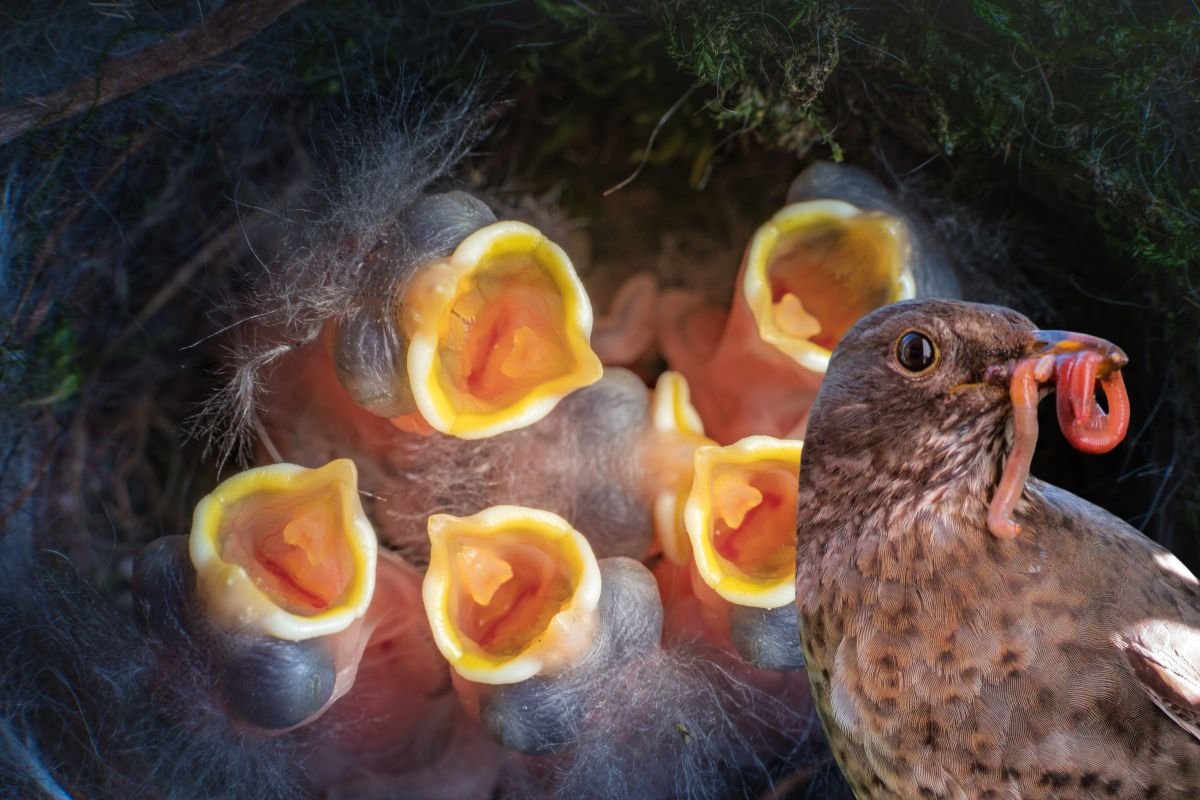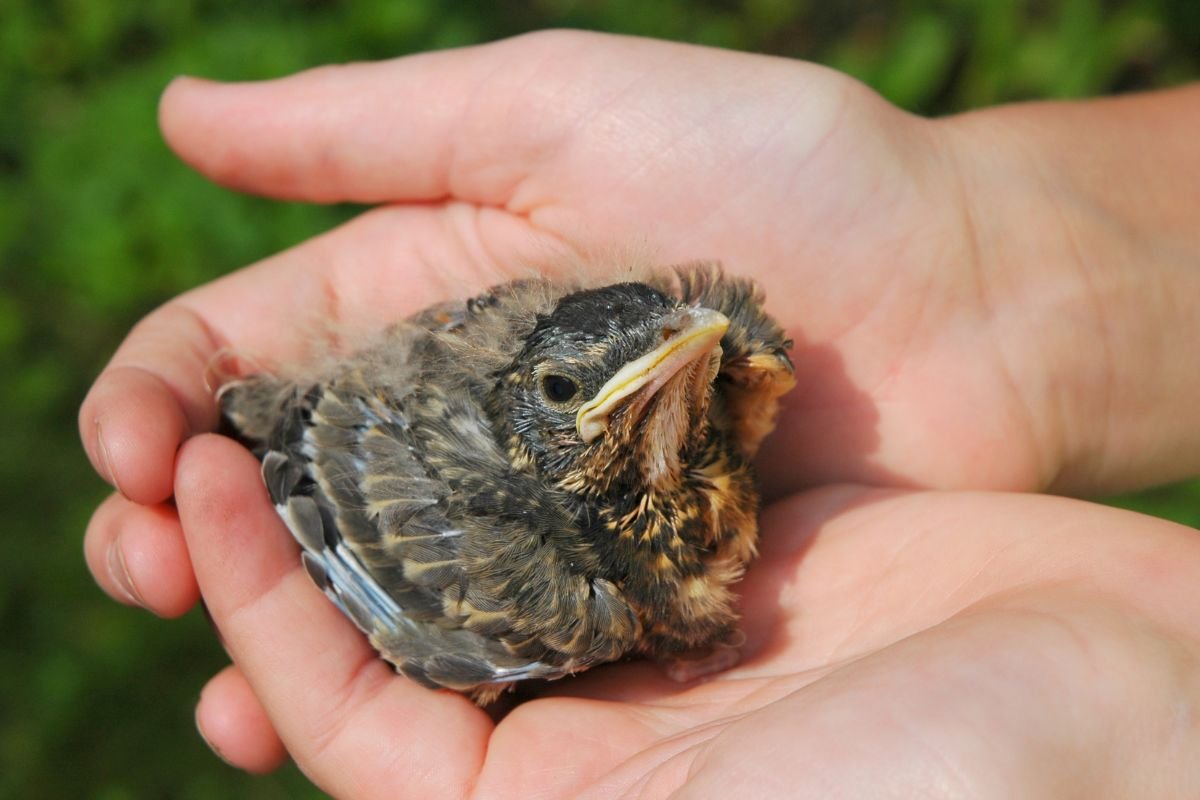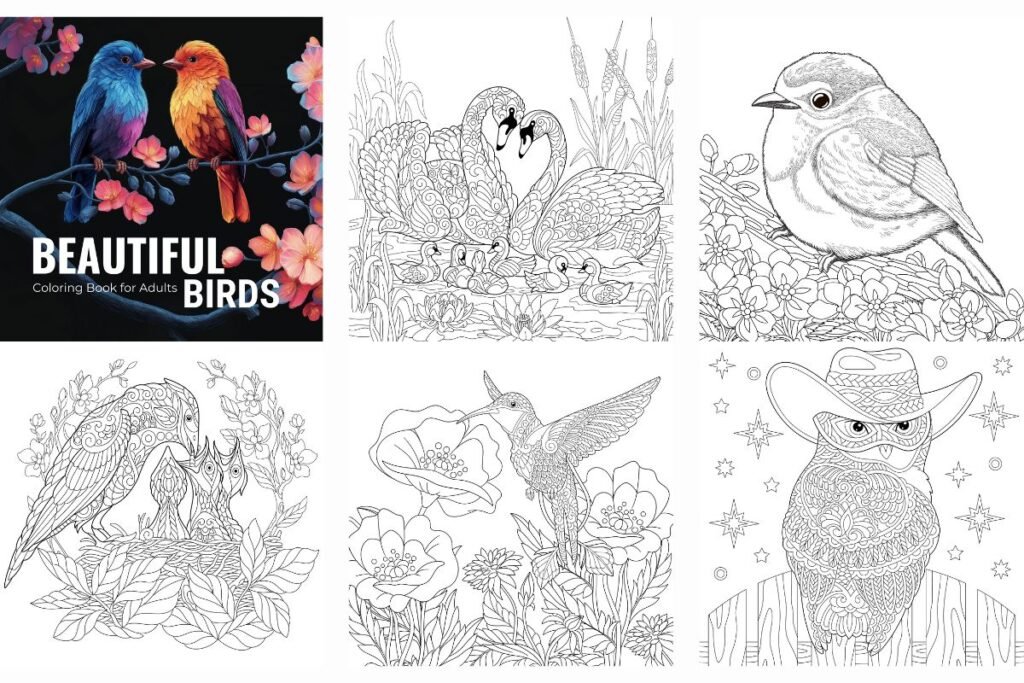Introduction to Baby Bird Nutrition
Ensuring the proper nutrition of baby birds is paramount to their growth, development, and overall survival. Each bird species exhibits distinct dietary needs, influenced by their ecological niches and evolutionary backgrounds. As such, understanding these nutritional requirements is essential for bird care enthusiasts, wildlife rehabilitators, and ornithologists alike.
Protein is a critical component of baby bird diets, playing a vital role in muscle and feather development. Insectivorous birds, for instance, require a high-protein diet predominantly sourced from insects and other small arthropods. However, the dietary preferences and needs can vary significantly; granivorous species may benefit from a greater emphasis on seeds and grains, which provide not only protein but also essential fats and carbohydrates.
The bird mom and dad play instrumental roles in providing balanced nourishment for their nestlings.
Parent birds often regurgitate partially digested food, which is then fed to the baby birds, ensuring that the latter receive a nutrient-dense diet tailored to their specific needs. This feeding behavior helps the young ingest food that is easier to digest but still rich in necessary nutrients.
Fats are crucial for energy provision and play a significant role in the thermal regulation of small birds, while carbohydrates supply the immediate energy needed for their active growth phases. A deficiency in any of these essential nutrients can lead to stunted growth, poor feather quality, and even mortality. Hence, a thorough comprehension of these nutritional aspects is indispensable for those who aspire to assist in wildlife conservation or simply wish to understand how to take care of a baby bird they may have rescued.
The intricate balance of proteins, fats, and carbohydrates underscores the complexity of avian nutrition.
Such knowledge is invaluable, not just for the survival of individual birds, but also for the sustenance of bird populations in an increasingly fragmented and urbanized world. By appreciating these nutritional fundamentals, we can better support wild birds and foster healthier ecosystems.

Common Foods for Baby Birds
Understanding the dietary needs of baby birds is crucial for their development and survival. In the wild, baby birds are primarily fed by their bird moms with a mixture of insects, worms, seeds, and regurgitated food. These natural sources provide essential nutrients required for growth. For example, small birds like sparrows and finches often rely on a high-protein diet consisting of insects and worms to support their rapid development.
Insects such as caterpillars, flies, and beetles are commonly used due to their rich protein content, vital for muscle and feather growth. Worms not only offer protein but also provide moisture which helps keep baby birds hydrated. Seeds, on the other hand, are an important source of fat, contributing to energy reserves necessary for their active lifestyle. The bird mom plays a pivotal role by regurgitating partially digested food, making it easier for baby birds to ingest and absorb the nutrients.
Different species have unique dietary requirements; hence, it’s essential to closely mimic their natural diet if you care for a baby bird.
For instance, birds of prey require a meat-based diet rich in protein and fats, while songbirds often benefit from a combination of insects and seeds.
For those raising orphaned baby birds, commercial bird food can be an invaluable resource. Specialized formulas have been developed to meet the dietary needs of various species and include ingredients ranging from ground insects to fortified grains. When incorporating commercial bird food into the diet of a baby bird, it’s crucial to follow the manufacturer’s guidelines and consider consulting a wildlife expert to ensure the proper nutritional balance.
Proper bird care is a multifaceted responsibility, involving not only the provision of appropriate bird food but also ensuring a safe environment, akin to a natural bird nest where baby birds can thrive. This holistic approach supports the health, growth, and development of wild birds, preparing them for eventual release into their natural habitats.
Do Baby Birds Drink Water?
When it comes to the hydration of baby birds, the approach is quite distinct from that of adult birds. Baby birds do not typically drink water directly. Instead, they receive their hydration from the food their parents provide. Parent birds regurgitate partially digested food, which contains sufficient moisture to meet the hydration needs of their offspring. This method ensures that baby birds remain hydrated without the need for them to seek out water sources directly.
Moisture content in bird food is crucial for the young birds, especially for species that have specific dietary requirements.
Since baby birds have delicate and developing systems, the regurgitated food from the parent birds aids in providing not just nutrients but also the necessary hydration. The importance of avoiding dehydration in baby birds cannot be overstated, as it is vital for their growth and overall health.

Understanding the water needs is crucial for caregivers raising orphaned or rescued baby birds.
Initially, the focus should be on providing a high moisture-content bird food that mimics what they would naturally receive from their parents. Specialized formulas designed for baby birds are available and are recommended to ensure the chicks receive balanced nutrition along with adequate hydration.
As baby birds mature, they will gradually adapt to drinking water independently.
Caregivers should introduce water carefully once the birds begin to exhibit behaviors that indicate readiness for self-feeding, usually around the fledgling stage. It’s important to provide water in a shallow dish to prevent drowning and encourage drinking.
Signs of proper hydration in baby birds include energetic behavior, clear and moist eyes, and healthy skin elasticity. Conversely, dehydration can manifest as lethargy, wrinkled skin, and sunken eyes. Close monitoring and prompt action are essential to ensure the well-being of the baby birds in your care.
Feeding baby birds requires careful attention to their dietary and hydration needs, whether they are in the wild or raised as pets.
A fundamental aspect to consider is the frequency of feeding. Newly hatched birds in particular need nourishment every 20 to 30 minutes during daylight hours. As they grow and develop, this interval can gradually extend to every few hours.
The best times to feed baby birds are early in the morning and in the late afternoon, mimicking natural feeding patterns.
It is also crucial to maintain a hygienic environment; all feeding apparatus should be sterilized to prevent infections. Unwashed hands or feeding tools can introduce harmful bacteria into their food. Signs of overfeeding include regurgitation and a swollen crop, while underfeeding might manifest as lethargy and poor growth. Caregivers need to strike a delicate balance by observing these signs closely.
Assessing the baby bird’s health through their droppings can provide insight into their nutritional status. Watery droppings may indicate overhydration while unusually dry droppings can signal dehydration. Nutritional imbalances should be addressed promptly, often requiring consultation with a veterinary professional specializing in wildlife.
As baby birds mature, transitioning to an adult diet involves a gradual introduction of solid foods.
Begin with soft foods like fruit pieces, moistened bird pellets, or boiled vegetables. Over time, these can be replaced with harder items such as seeds and insect larvae. The bird mom instinctively knows how to prepare her fledglings for the wild; hence imitate nature by offering a diverse diet to ensure a smooth transition.
By diligently adhering to these feeding practices, caregivers can greatly contribute to the healthy development of baby birds.
The goal is not only to meet their immediate nutritional needs but to equip them with the dietary habits necessary for long-term survival and well-being.


